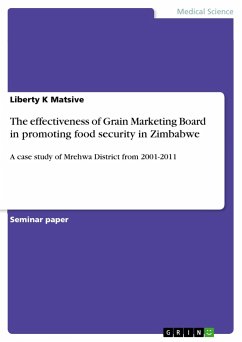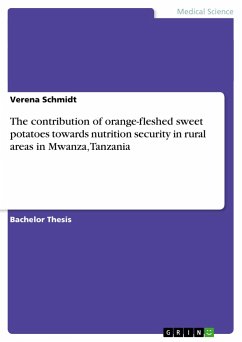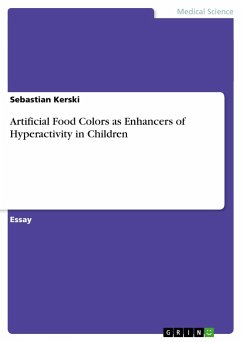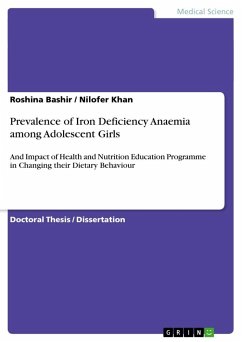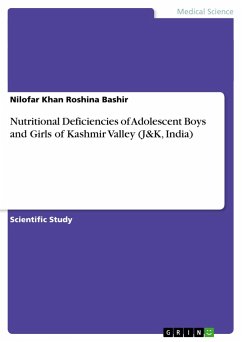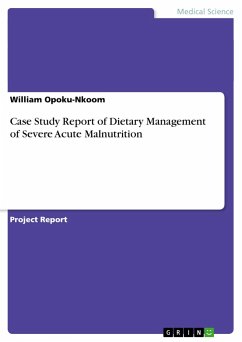Seminar paper from the year 2012 in the subject Health - Nutritional Science, grade: 2.1, , course: History and Development Studies, language: English, abstract: Food insecurity has emerged as one of the major developmental challenges in the third world countries and has become more intensely pronounced in recent years with the threat posed by recent trends, such as climate change, water, and rainfall scarcity, as well as ecosystems and biodiversity degradation exacerbating these problems. Additional pressure has also emanated from the skyrocketing population growth and its simultaneous demand for food. Many of developing and developed countries have taken several measures to mitigate its impact. One of the main measures taken was to establish state controlled boards for instance in Zambia the National Agriculture Marketing Board (NAMBOARD), Agriculture Development and Marketing Corporation (ADMARC) in Malawi and National Cereals and Produce Board in Kenya and the Dominion Marketing Board in Canada were some of the state controlled boards responsible for marketing of grain so as to promote food security. In 2001 the government of Malawi banned the private sector from buying imported maize from National Food Reserve Agency leaving ADMARC the sole agency authorised to sell imported maize so as to promote national food security. In Zimbabwe, the Grain Marketing Board was established under the Maize Control Act of 1931 as the Maize Control Board in response to the 1930 World Recession to address food insecurity challenges and renamed the Grain Marketing Board in 1951 when other crops, like rice and wheat, were added to its mandate.The mission of GMB is to ensure food security in Zimbabwe through the marketing of grain related agricultural products with particular reference to staple food products, namely maize and wheat. The GMB is, as its name implies, an institution whose main function, is the orderly marketing of agricultural products, mainly grains, oil seeds, edible beans and coffee within Zimbabwe, maintain strategic Grain Reserves, implement the Input Supply Credit Scheme to stimulate agriculture, provision of agricultural grain handling, storage and processing facilities and dealing with market failures, buyer of last resort. The GMB buys a variety of crops from farmers and sells them into the domestic agro-processing industry in addition to exporting these products to regional and international markets when in excess and imports these products from both regional and international markets, when in short supply, so as to promote food security at both national and household level.
Hinweis: Dieser Artikel kann nur an eine deutsche Lieferadresse ausgeliefert werden.
Hinweis: Dieser Artikel kann nur an eine deutsche Lieferadresse ausgeliefert werden.

